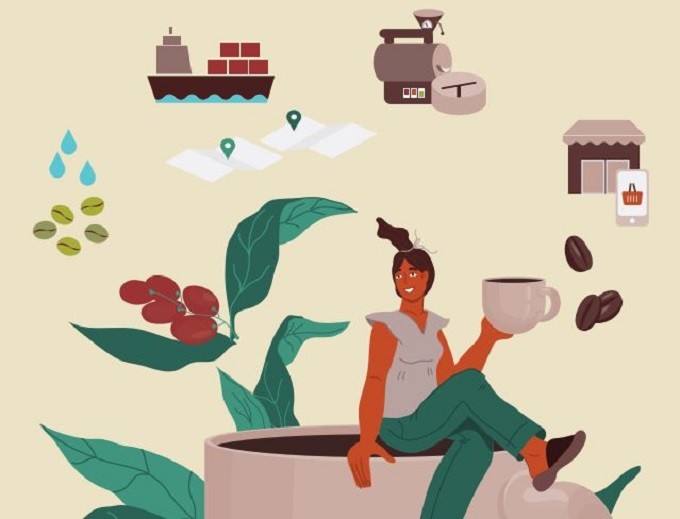GENEVA, Switzerland, (ITC News) – The International Trade Centre (ITC), through its Alliances for Action initiative, today unveils the fourth edition of the world’s most comprehensive, practical source for the international coffee trade, The Coffee Guide.
This new edition updates the latest trends of the last decade, especially for quality, digitalization, climate change, finance and risk and consumer preferences. It presents fresh industry data that classify production and consumption numbers by coffee quality segment (standard, premium and specialized) rather than the traditional Arabica/Robusta classification of data.
This guide is designed to be a practical tool for producers, exporters and other value chain stakeholders to support a positive transformation of the sector. It can be accessed globally and free of charge.
The book builds on collaboration with more than 70 coffee industry actors from across the globe, from seed to cup, to chart a path towards a more sustainable future for the industry. A focus on sustainability, inclusiveness and partnerships steer its content.
The book will be translated into Spanish, French and Portuguese
Coffee in the global economy
The guide also explains how coffee is critical to many people in the global economy. For major producing countries, it is a major source of income. About 95 percent of the world’s 12.5 million coffee farms are smaller than 5 hectares. Almost half are in Ethiopia (2.2 million), Uganda (1.8 million) and Indonesia (1.3 million). Burundi, Colombia, Kenya and Viet Nam each have more than 500,000 coffee farmers.
Coffee-producing countries ship most of their beans overseas, earning $20 billion in exports annually. Ethiopia counts on coffee for more than a quarter of its export earnings, while coffee accounts for at least 20 percent of Burundi’s export revenue.
At least 100 million families depend on the coffee supply chain for their livelihoods – ranging from farmers, traders, processors and roasters to distributors, marketers, packaging suppliers, baristas and even those who deal with coffee waste disposal, reuse or recycling. Small producers are the backbone of the industry, yet at least 5.5 million live below the international poverty line of $3.20 a day.
Consumption is highest in Europe, the United States and Brazil, but South-East Asia is catching up. Rising incomes and higher standards of living among the growing middle class have given coffee consumption a boost – for both high-quality coffees and instant or flavoured coffees. The guide explores how these shifting dynamics can be leveraged and highlights the importance of value addition at origin, South-South trade and supporting the development of coffee consumption in producer countries where it is still low.
‘Farm-level income must grow sustainably to secure the coffee industry’s future. Public-private partnerships, alliances between supply chain operators, and policy are also instrumental to drive it towards widespread change,’ said Pamela Coke-Hamilton, ITC executive director. ‘This guide is a step towards providing insights into making this possible. ’The coffee market and its value chain are grappling with the COVID-19 pandemic, which has had a profound impact on production, consumption and cross-border trade. Most producer countries and some consumer countries still face major transport logistics challenges and border delays that have affected the coffee trade.
Commercially produced in more than 50 countries, some 3 billion cups of coffee are consumed every day, with demand growing at an annual rate of 2.2 percent. At the same time, farmers face volatile market prices, making their business extremely difficult to manage. This comes against a backdrop of rural youth leaving farming, gender inequality and human rights concerns.





